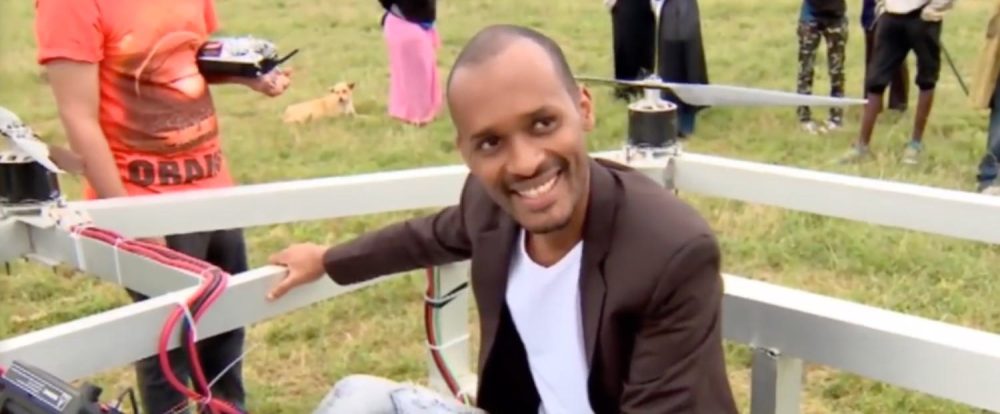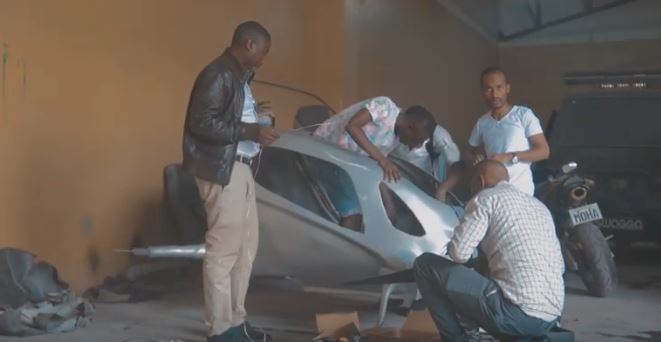Raised by his grandparents in abject poverty, life for Morris Mbetsa in Kenya’s coastal city of Mombasa was a struggle – a situation he turned into success years later, joining the exclusive club of celebrated aeronautical engineers.
Mbetsa made history in 2018 when he took a giant leap to the sky with a drone huge enough to fly passengers. The first in Africa.

Mbetsa realized his interest in technology at the tender age of six. “Technology is my life. I never watched football while growing up. My room was full of electronics and wires,” he told Kenyan network K24.
Burned with the idea of building Africa’s first flying taxi, Mbetsa would have to drop out of college to carve out a strategy for his amazing invention. He didn’t have the patience “to wait for a lecturer to take me through many stages for the next six years.”
“That was too long,” he said.
Mbetsa then made the internet his friend, collecting enough knowledge and skill to realize his vision of building Africa’s first passenger drone. He later got exposed and had great training to refine his skills.
Mbetsa began actualizing his vision after he noticed the people he shared it with – the developed countries – weren’t willing to share the innovation with Africa. They wanted to keep it, a proposal he rejected.
“This is where we (Africa) have the bad roads, constant floods, and having seen that they (developed nations) were not willing to share this with us, I took it up as a challenge and started working on this project,” he said.
The drone taxi is powered electrically and can carry one passenger for up to 25 minutes at a speed of over 120 kilometres per hour with an elevation between 10 and 30 feet above the ground level.
“With this drone, you can easily fly from Nairobi CBD to Thika, you, however, need to be trained first and be certified to operate this drone, before you are allowed to fly it,” he stated.

The drone taxi can be operated manually or controlled using a remote.
Mbetsa and his team have begun work on an air traffic control system, to enhance communication between all the flying taxis while on a flight and hope to be part of these inventors who propose a solution adapted to the realities of his country and his continent. For him, Africa can have its taxi-flying drones instead of waiting for what is done elsewhere and it will bring relief given the debilitating nature of most of the continent’s road networks, where access to villages has been cut in earnest.
Before this landmark invention, Mbetsa had managed to come up with a car security system, that used a mobile application to track cars in 2009. He has also developed a tablet to be used by students and a device to tap kinetic energy to power them.


